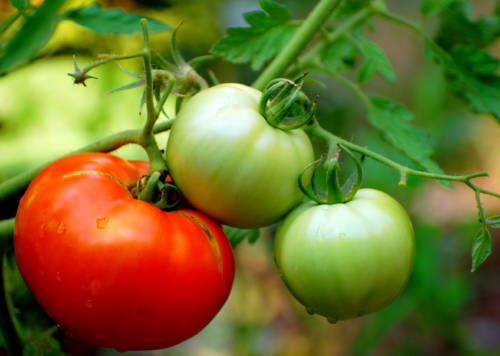
What’s Happening With The Farm Bill?
If you’re feeling overwhelmed by all the developments that seem to unravel each day, you’re not alone. In a recent blog post, the James Beard Foundation put together a guide to surviving the flurry of developments happening in and around the food industry– especially with regard to the Farm Bill. As Katherine Miller writes for the James Beard Foundation:
To keep it all straight, we are turning more and more to James Beard Award winner Civil Eats for breaking news and in-depth analysis. Want to know what’s happening with the Farm Bill? Read this piece by Leah Douglas. Or if you need a general primer on where various food policies stand, check out Whitney Pipkin’s piece here. (Of course, Eater’s new policy portal and Politico’s coverage are great, too.)
State and Local Programs Take Charge
As we wait to see what’s going to happen with federal policy, we’ve been excited to see so much activity happening at the state and local level.
The Impact team recently traveled to Seattle, San Francisco, and Nashville to meet with chefs and community leaders on a range of issues. In Seattle, the discussion focused on sustainable seafood and how chefs can help drive change in the supply chain. In San Francisco, we celebrated women’s entrepreneurial leadership and launched a new program. In Nashville, we joined with NRDC and the Mayor’s office to kick start local efforts to reduce food waste. With all the divisiveness of our current day, it was nice to see people working together.
We’re also excited to see the launch of new programs around the country designed to help tell a better story about the economic impact of a good food economy.
Early in February, the Good Food 100 launched with support from dozens of chefs, including many Chefs Boot Camp for Policy & Change alumni like Mike Anthony, Rick Bayless, Alex Seidel, Kelly Whitaker, Hugh Acheson, Jennifer Jasinski, Jonathon Sawyer, William Dissen, Steven Satterfield, Andrea Reusing, and Bill Telepan. This first-of-its-kind program collects data from restaurants and will report out the total food costs spent to support state, regional, and national “good food” producers and purveyors. Chefs and restaurants interested in participating can visit the Good Food 100 website to complete the survey by March 31, 2017. Look for the release of the the Good Food 100 inaugural rating and economic analysis report in May 2017.
Other initiatives are collecting similar data related to sustainable seafood and climate change. All of this information will help chefs, producers, and consumers make better food purchasing decisions, which in turn will help us build a better food system for all. (If you’re interested in participating in Smart Catch program, please fill out this survey.
Black Culinary History
February is also Black History Month, and it’s been great to see renewed interest in culinary heroines such as Edna Lewis (thanks in part to Top Chef). We’re revisiting Toni Tipton-Martin’s JBF Award–winning book The Jemima Code to continue learning about culinary pioneers and the African-American foodways. You can also check out Black Culinary History for even more information.
The last few months have been busy, but with the help of great resources, some fun events, a little history, and a lot of people working together we’re making progress. Thanks for joining us!
As always, you can follow us at @JBFChefAction, on Facebook at Chef Action Network and through all the Beard Foundation channels.
Read the rest of the article on the James Beard Foundation’s website.



































